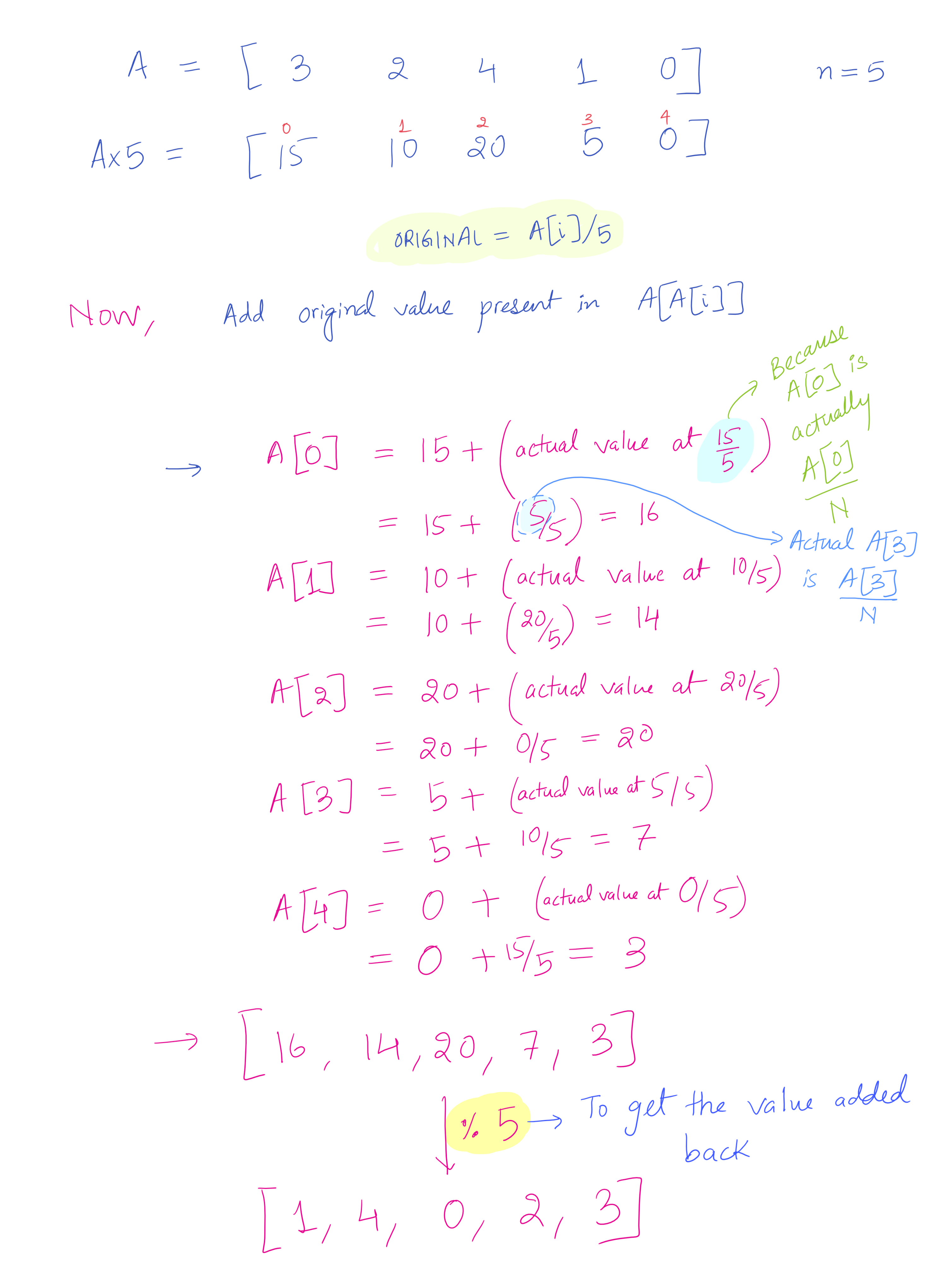Problem Description
Given a list of elements (an array) and a postive integer m, replace all elments such that Array[i] = Array[Array[i]]. All elements in the array are in the range [0, N-1].
Solution

One of the obvious way to do this is by using extra space. We can simple create a new list and loop through the given array/list and keep updating the values needed in our answer array/list.
Let’s think about how we can do it in a more optimized way without using extra space.
Example:
Array: 3 4 2 0 1The result will be:
= [ A[3], A[4], A[2], A[0], A[1] ]
= [ 0, 1, 2, 3, 4 ]
The challenge here is to keep a track of two things:
- The existing value in the input array
- The value at the index denoted by A[i]
Think how the following example:
- 23 hours means: 0 day, 23 hours
- 25 hours means: 1 day, 1 hour
- 48 hours means: 2 days, 0 hour
- 50 hours means: 2 days, 2 hours
- x hours means: x/24 days, x%24 hours
Since the range of elements in the array is [0, N-1], we can somehow use this logic to save two things in our array.
To store the actual given input, let’s multiple all elements by N:
1
2
3
for(int i=0; i<n; i++){
A.set(i, A.get(i)*n);
}
To get the actual value, we can just divide by N.
Now, to store the 2nd value (the value at index Array[i]), let’s add Array[i] to each element. Note that we have multiplied each element by N, so we will need to retrieve that element by dividing it to get the actual value.
1
2
3
4
5
for(int i=0; i<n; i++){
int idx = A.get(i)/n; //get the index from which we need to get the new value
int val = A.get(idx)/n; //get the new value from that index calculated. We divide it by N since we had multiplied by N in the previous loop
A.set(i, val+A.get(i)); //update it by adding the retrieved value
}
From this new list, we can get both the actual value by dividing it by N and the value which needs to be updated to by taking mod of N.
To update the list in-place, simply add another loop:
1
2
3
for(int i=0; i<n; i++){
A.set(i, A.get(i)%n);
}
Complete Code:
1
2
3
4
5
6
7
8
9
10
11
12
13
14
15
16
17
18
19
20
21
22
23
24
import java.lang.*;
import java.util.*;
import java.util.Collections;
public class Solution {
public void arrange(ArrayList<Integer> A) {
int n = A.size();
for(int i=0; i<n; i++){
A.set(i, A.get(i)*n);
}
for(int i=0; i<n; i++){
int idx = A.get(i)/n;
int val = A.get(idx)/n;
A.set(i, val+A.get(i));
}
for(int i=0; i<n; i++){
A.set(i, A.get(i)%n);
}
}
}
